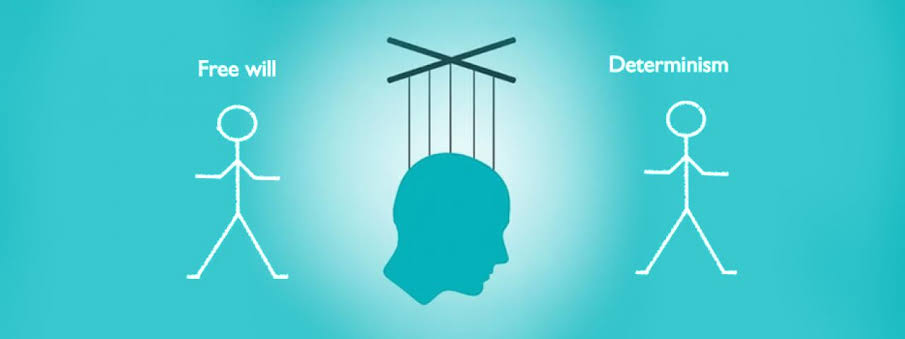The question of free will versus determinism is one of the oldest and most debated topics in philosophy, psychology, and even neuroscience. Do we truly have the power to make our own decisions, or are our choices shaped by forces beyond our control—such as biology, society, and our life experiences?
In this blog, we’ll dive into the complex and fascinating debate over free will, examine the role of biology, society, and experiences in shaping our decisions, and offer insights into what the latest research suggests about our ability to choose our own paths. By exploring the arguments from multiple perspectives, we aim to provide an informative and trustworthy guide to understanding whether we control our destinies or if we are simply following a script written by our genes and environments.

The Concept of Free Will: Do We Really Have It?
Free will is the idea that individuals can make choices and decisions independently, free from external influences. It implies that people have the capacity to act based on their own desires, intentions, and motivations, rather than being compelled by fate or external forces.
The notion of free will is central to how we think about morality, responsibility, and personal identity. If we believe that we have free will, we tend to hold people accountable for their actions, assuming that they had the freedom to choose differently. But this raises an important question: Are our choices truly free, or are they influenced by factors beyond our control?

Biological Determinism: The Role of Genes and Neuroscience
One of the strongest arguments against free will comes from the field of biology. Biological determinism is the belief that our behavior and choices are determined by our genetic makeup and brain chemistry. According to this perspective, our decisions are largely influenced by the neural circuits and hormones that govern our brains.
Neuroscientific research has revealed that many of our decisions occur at a subconscious level before we even become aware of them. For example, studies using brain scans have shown that neural activity associated with making a decision can occur seconds before a person consciously “decides” to act. This suggests that our brains might be making choices for us, without our conscious awareness.
- Example: In a famous study by neuroscientist Benjamin Libet, participants were asked to press a button at a time of their choosing. The researchers found that brain activity corresponding to the decision to press the button occurred before the participants reported feeling the conscious desire to act. This led many to question whether free will is merely an illusion.
While biological determinism offers a compelling case against free will, it is important to note that genes do not dictate every aspect of human behavior. Environmental factors, personal experiences, and conscious thought processes still play a significant role in shaping who we are.

Social and Environmental Influences on Free Will
Society and environment also exert a powerful influence on our decisions. From the moment we are born, we are shaped by the culture, norms, and expectations of the world around us. Social determinism suggests that our choices are heavily influenced by societal structures, such as our family upbringing, education, socioeconomic status, and peer pressure.
- Cultural Conditioning: The values and beliefs we are exposed to growing up can shape the way we think, feel, and behave. For example, someone raised in a conservative culture might adopt traditional values, while someone raised in a progressive environment may lean toward liberal beliefs. This raises the question: If our choices are influenced by the culture in which we are immersed, can we truly claim that they are “free”?
- Economic and Social Status: Opportunities and access to resources also play a huge role in shaping our choices. For example, someone from a disadvantaged background might not have the same career opportunities as someone from a privileged family. While they may still “choose” a career, the range of available options is significantly limited by their circumstances.
This doesn’t necessarily mean that free will doesn’t exist, but rather that our decisions are made within the constraints imposed by society. The choices we make may reflect our desires and intentions, but those desires and intentions are often shaped by external factors.

The Role of Personal Experience
Life experiences also shape our personalities, desires, and decision-making processes. Psychologists often point to the fact that past experiences, particularly in childhood, have a profound impact on adult behavior. Trauma, upbringing, and learned behaviors all influence the way we perceive the world and make choices.
- Conditioning: Classical and operant conditioning suggest that our behavior is learned through past experiences. For example, if a person is rewarded for a specific behavior, they are more likely to repeat it in the future. Conversely, if they are punished for a behavior, they may avoid it. This learned behavior pattern limits our choices based on past consequences, making the notion of free will more complex.
- Cognitive Biases: Psychological research has shown that our decisions are often influenced by cognitive biases, which are mental shortcuts or patterns of thinking that are based on past experiences. These biases can lead us to make irrational decisions, further complicating the idea of free will. Are we truly making free choices, or are our decisions simply the result of biased thinking patterns ingrained through experience?

Free Will vs. Determinism: A Middle Ground?
So, if our decisions are shaped by biology, society, and experience, do we have any free will at all? Some theorists suggest a compatibilist view, which holds that free will can coexist with determinism. According to this view, while our choices may be influenced by external factors, we still have the ability to reflect on those influences and make decisions based on our personal desires, values, and goals.
In this sense, free will is not absolute; it exists within the context of the influences that shape us. While we may not be entirely free from biological or social constraints, we still possess the ability to make meaningful choices that reflect our individuality.
Practical Insights: How to Harness Free Will in a Deterministic World
Even if our decisions are influenced by forces beyond our control, understanding these influences can help us make better, more informed choices. Here are a few practical tips for harnessing your sense of free will in a world that can feel deterministic:
- Cultivate Self-Awareness: Recognize the factors that influence your decisions, whether they be genetic predispositions, societal pressures, or personal experiences. By becoming more aware of these influences, you can begin to make more conscious choices.
- Challenge Cognitive Biases: Be mindful of cognitive biases that may cloud your judgment. Learning about common biases like confirmation bias or the availability heuristic can help you make more rational decisions.
- Embrace Personal Responsibility: Even if your choices are influenced by external factors, you are still responsible for your actions. Take ownership of your decisions and strive to make choices that align with your values and long-term goals.
- Expand Your Perspective: While societal and environmental influences shape us, we can expand our worldview by exposing ourselves to new experiences, cultures, and ideas. This can help us make more informed, diverse decisions.
Conclusion: Do We Have Free Will?
The debate over free will versus determinism is far from settled, but one thing is clear: our choices are influenced by a combination of biological, societal, and experiential factors. While we may not have absolute free will, we still possess the ability to reflect on these influences and make decisions that align with our values and desires.
Ultimately, understanding the forces that shape our decisions allows us to navigate life with more self-awareness, responsibility, and control. So, while the question of whether free will truly exists remains open, the pursuit of making thoughtful, intentional choices is within our grasp.



